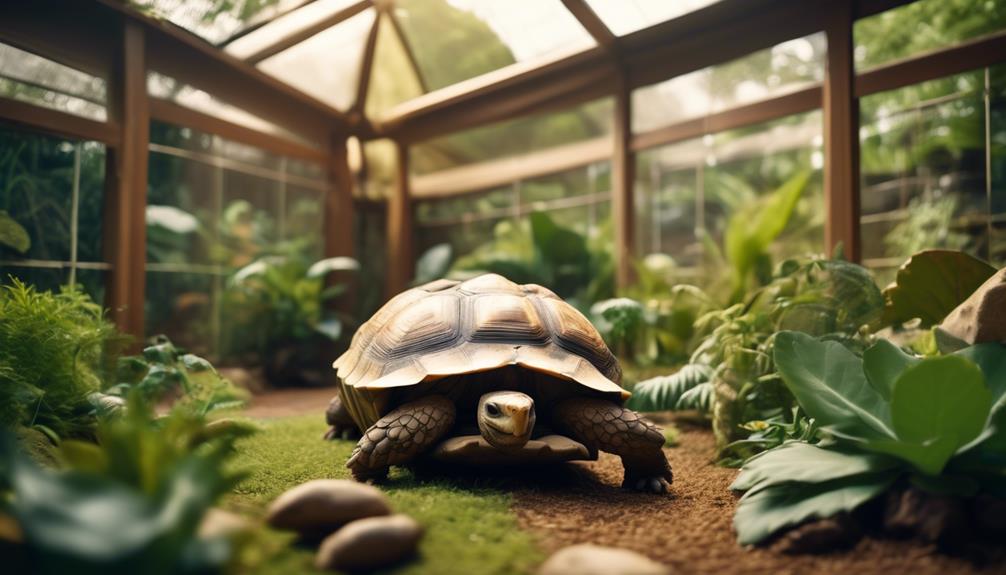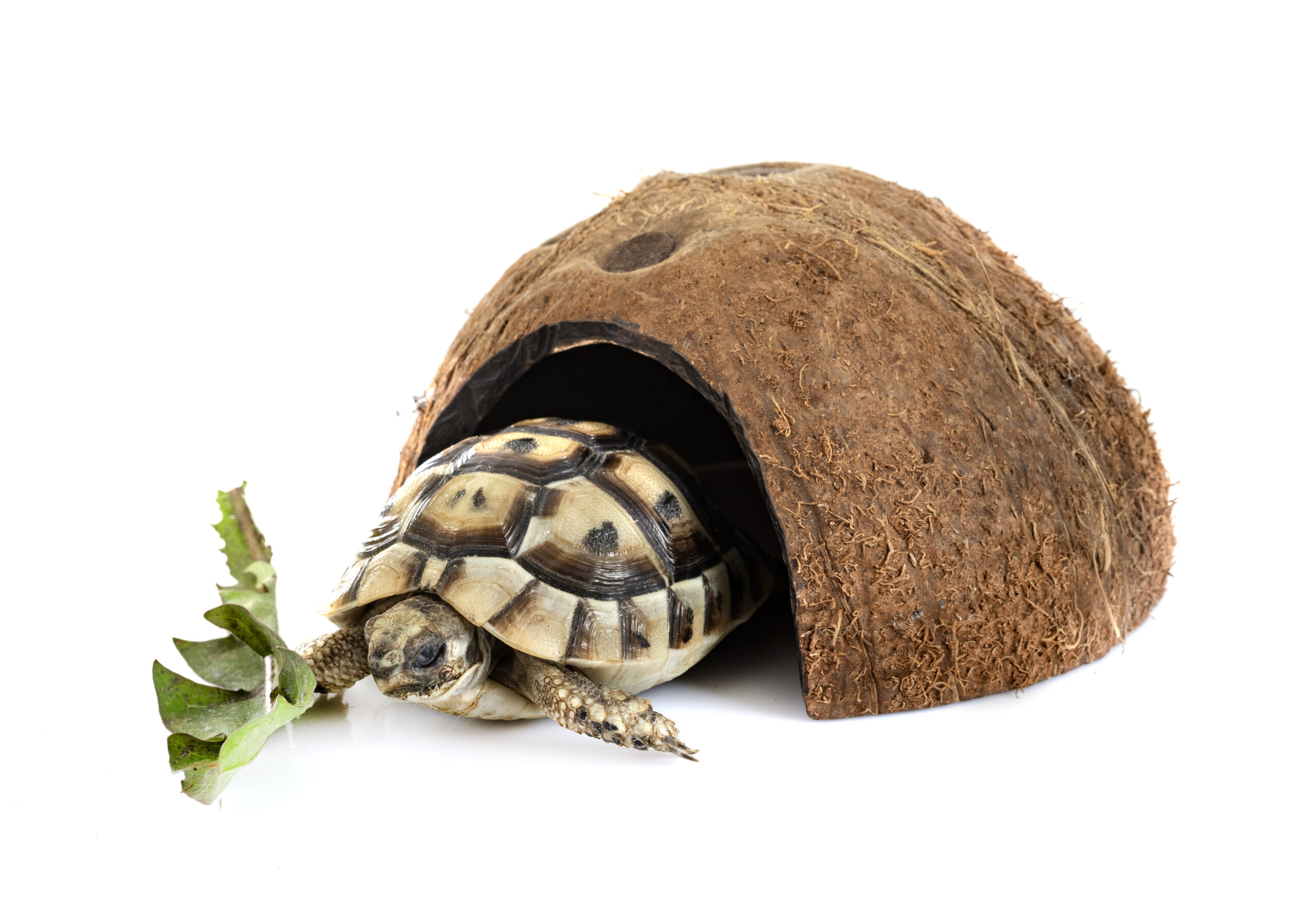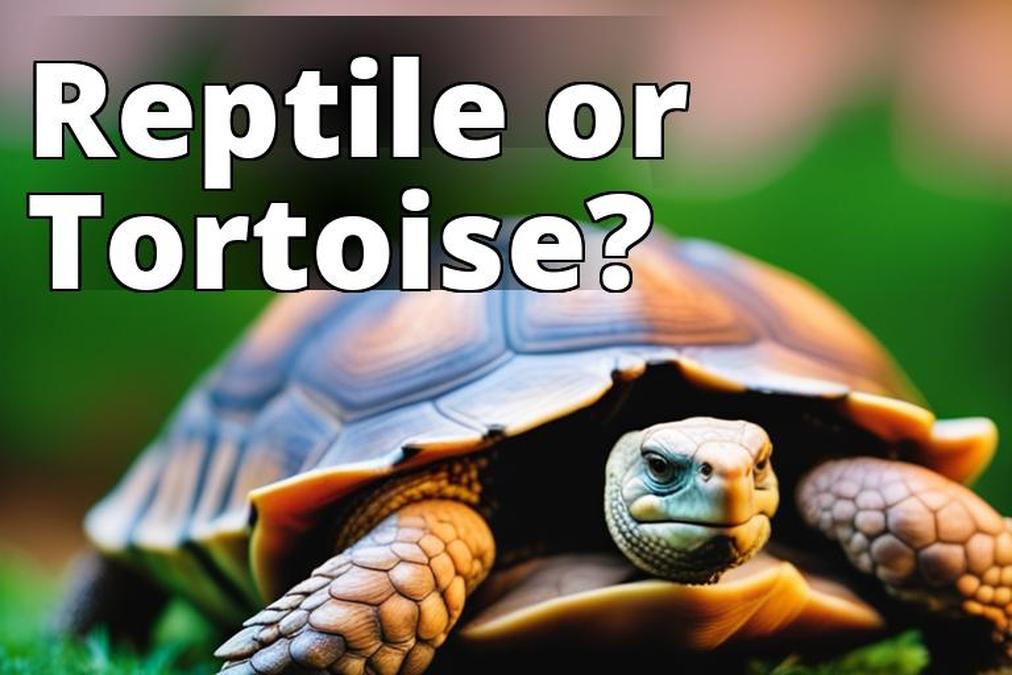Are tortoises affectionate? This is a common question among those considering a pet tortoise. While they may not show affection in the same way as dogs or cats, tortoises are capable of forming strong bonds with their owners. In this guide, we will explore the possibility of tortoises being affectionate and how you can build a strong connection with your pet tortoise.
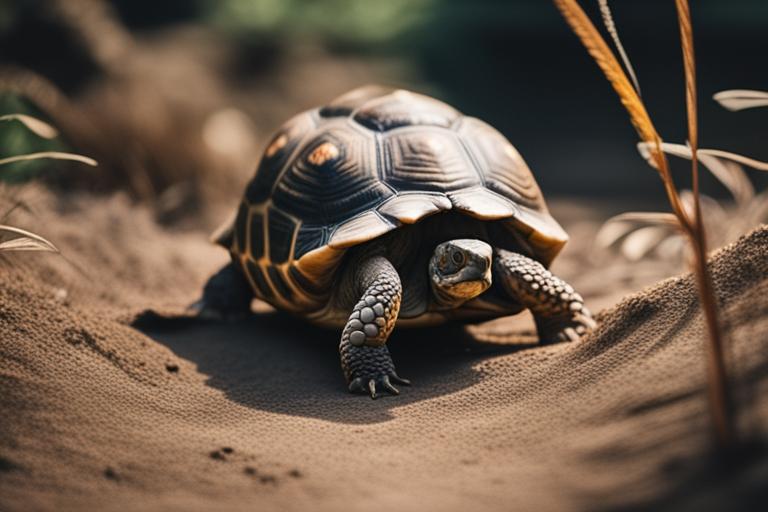
Understanding Tortoise Behavior
Tortoises are solitary animals that spend most of their time resting, exploring their environment, and foraging for food. They have a slow metabolism, which means that they don’t need to eat or drink often. Tortoises also have a strong sense of smell and can recognize different scents, including the scent of their owners.
When it comes to human interaction, tortoises are generally indifferent. They don’t seek attention or affection from humans and are often content to be left alone. However, this doesn’t mean that tortoises can’t show affection. They may not have the same level of emotional attachment as dogs or cats, but they can form strong bonds with their owners.
Tortoise Affection: Understanding and Building a Connection
- Tortoises can show affection towards their owners.
- Factors such as age, species, and care influence how affectionate tortoises can be.
- Providing a healthy environment, spending quality time, and being patient and respectful can help build a bond with your tortoise.

Factors That Influence Tortoise Affection
Several factors can influence a tortoise’s affection towards their owner. The age and gender of the tortoise are important factors. Younger tortoises are often more curious and active, which can make them more interested in interacting with their owner. Male tortoises are also more likely to show affection than females, as they tend to be more social.
The species of tortoise can also influence their affection. Different tortoise species have different personalities and behaviors. For example, the Russian tortoise is known for being more active and social than other tortoise species, which can make them more likely to show affection.
The impact of raising and caring for a tortoise can also influence their affection towards their owner. Tortoises that are well-cared for and provided with a healthy living environment are more likely to be happy and content, which can lead to a stronger bond with their owner.
| Factors to Consider | Tips to Build a Bond with Your Tortoise |
|---|---|
| Age and gender | Spend quality time with your tortoise |
| Species | Offer treats and rewards |
| Raising and caring for the tortoise | Be patient and respectful |
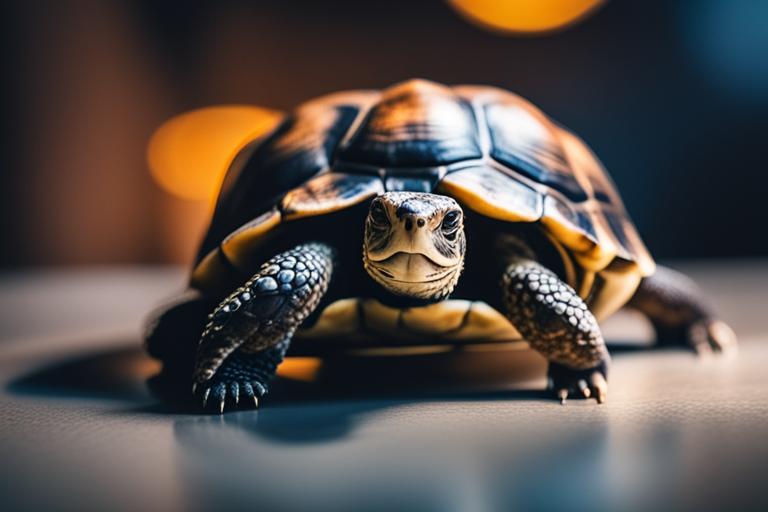
Building a Bond with Your Tortoise
If you want to build a strong connection with your tortoise, there are several things you can do. The first step is to provide a healthy living environment for your tortoise. This includes providing a spacious enclosure with plenty of toys and hiding spots, as well as a suitable diet and lighting.
Spending quality time with your tortoise is also important. This can include taking your tortoise out of their enclosure for supervised exploration, talking to them, and even giving them a gentle scratch on their shell. You can also offer treats and rewards to your tortoise to encourage positive behavior.
Being patient and respectful is also key to building a bond with your tortoise. Tortoises are slow-moving creatures, and it can take time for them to warm up to their owner. It’s important to be patient and let your tortoise approach you on their own terms. You should also respect their boundaries and never force your tortoise to interact with you if they don’t want to.
Signs of Tortoise Affection
While tortoises don’t show affection in the same way that dogs or cats do, there are still some signs that they may be showing affection towards their owner. For example, a tortoise may follow their owner around, greet them when they enter the room, or even crawl onto their lap for a rest.
Understanding tortoise body language is also important when trying to determine if your tortoise is affectionate. Signs of happiness and contentment in tortoises include relaxed limbs, a relaxed head and neck, and open eyes.

Benefits of Having an Affectionate Tortoise
Having an affectionate tortoise can bring many benefits to your life. For one, it can improve your mental and emotional well-being. Studies have shown that spending time with pets can reduce stress and anxiety, increase feelings of happiness and contentment, and even lower blood pressure.
An affectionate tortoise can also be a great conversation starter and a unique addition to your household. They can provide hours of entertainment and are fascinating animals to observe.
Conclusion: ## Personal Experience: How I Bonded with My Tortoise
When I first got my tortoise, Timmy, I was excited to have a new pet, but I was also nervous. I had heard that tortoises could be aloof and difficult to bond with. However, I was determined to build a strong connection with Timmy.
One of the first things I did was create a healthy living environment for him. I made sure his enclosure was spacious, with lots of hiding places and things to climb on. I also provided him with a variety of healthy foods and made sure his water was always clean and fresh.
Next, I started spending quality time with him every day. At first, he was hesitant and would retreat into his shell whenever I approached. But I was patient and consistent, and over time he started to become more comfortable around me.
I also started offering him treats and rewards to reinforce positive behavior. For example, if he came out of his shell to explore when I was around, I would offer him a small piece of fruit as a reward.
Finally, I made sure to be respectful of Timmy’s body language and boundaries. If he seemed stressed or uncomfortable, I would back off and give him space.
Now, after several months of consistent effort, Timmy and I have built a strong bond. He comes out of his shell to greet me when I enter the room, and he even lets me pet him on occasion. I never thought I would be able to have such a close relationship with a tortoise, but with patience and effort, it is possible.
Affectionate Tortoises Are Possible
In conclusion, tortoises are capable of forming strong bonds with their owners. Understanding their natural behavior, the factors that influence their affection, and how to build a bond with your tortoise can help you create a strong connection with your pet. Remember to be patient, respectful, and observant when interacting with your tortoise, and you may be surprised at how affectionate they can be.
Q & A
Question: Who should consider getting a tortoise as a pet?
Answer: Anyone who wants a low-maintenance, long-lived companion that can be very affectionate.
Question: What is the lifespan of a tortoise?
Answer: Depending on the species, tortoises can live for 50-100 years or more with proper care.
Question: How can I tell if my tortoise is happy?
Answer: Look for signs of a healthy appetite, active behavior, and willingness to interact with you.
Question: Who should not get a tortoise as a pet?
Answer: People who are not committed to providing the space, time, and resources needed for their care.
Question: What are some ways to bond with my tortoise?
Answer: Offer favorite treats, hand-feed them, and spend time interacting with them in their enclosure.
Question: How do I handle objections to keeping a tortoise?
Answer: Remind people that proper care can be rewarding, and that many tortoises are surrendered due to improper care.





